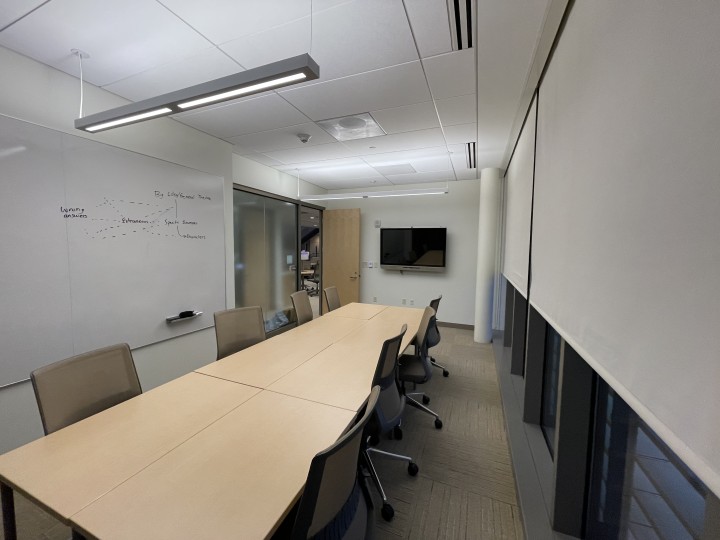The comps for political science and sociology involve different skillsets. In studying for the political science capstone, I am relearning and practicing applying my knowledge on the five core classes to prepare for two tests composed of writing each essay in a two-and-a-half hour time block. In sociology, I am writing a research paper that allows me to explore an area more in-depth.
For my research paper, I am writing on Moms for Liberty (a conservative political group) and how they organize and convey their messages to school boards. The process of watching school board meetings, analyzing transcripts and then connecting it to theories in sociological literature was satisfying as I am able to contribute to a broader conversation happening in academia. Along the way, I am taking what I learned in class and applying it to real life issues, such as learning about the difference between what Moms for Liberty considers sacred versus what they considered profane according to Émile Durkheim’s theories. Completing my research paper excites me — I will have something tangible to show what I have learned being a sociology major.
As I enter the library, I pass by another senior sociology major. In the fall, every week we sat around a seminar table in Oden Hall to discuss the major takeaways from the field of sociology. While comps are submitted as an individual piece, the process, like most things at Kenyon, involves collaboration among majors. I ask him how his paper is going. We both are making good progress, just needing to do another read through. In December, we, along with our classmates, presented our initial findings and the faculty gave feedback. We chat about which professors gave the most interesting feedback as we are now incorporating their comments into our exam. I wished them luck on their paper and left for my next stop.
 I entered Chalmers room 215 after I made sure that we checked into our reserved room. My group is studying in a different room than I initially suggested. We first started to study in Chalmers room 201, but my group mates found it distracting to stare at Middle Path. Oftentimes, rather than studying the material, we would be studying our friends walking outside. So, we switched to Chalmer room 215 with floor to ceiling windows and a long table. There is also a whiteboard in the room where I draw charts and diagrams to help study. Additionally, a TV screen is present where we have presented slideshows to review the major themes of a class. In short, the room has enhanced our learning.
I entered Chalmers room 215 after I made sure that we checked into our reserved room. My group is studying in a different room than I initially suggested. We first started to study in Chalmers room 201, but my group mates found it distracting to stare at Middle Path. Oftentimes, rather than studying the material, we would be studying our friends walking outside. So, we switched to Chalmer room 215 with floor to ceiling windows and a long table. There is also a whiteboard in the room where I draw charts and diagrams to help study. Additionally, a TV screen is present where we have presented slideshows to review the major themes of a class. In short, the room has enhanced our learning.
As the weeks went by in studying, Chalmers 215 felt oddly familiar to us. We developed a normal routine upon entering the room. I adjusted the shades when I walked into the room, so that the sun was not shining in my eyes. Our group then discussed the exam and how we felt our studying was going. We often tried to guess what the questions the professors would or would not give us on the exam. Next, we dug into the material.
Pouring over old notes reminded us of how far we have come. What was once a foreign concept now felt like basic knowledge to us. For example, as we review what Plato considered was the perfect regime, we are able to have a better understanding of the different cities that he talked about in the Republic. Since we took the core classes with different professors, we compared the examples they used, wrapping up the session by making a plan for what we wanted to do next time.
Putting in the work for class means you will get a lot out of it. Similarly, reviewing for comps is a way to look back on the work that we have already done. As I walk out of Chalmers room 215 with my group, I think about all of the ways I can apply my knowledge on the exam. Similarly, as I start to take out my sociology comps material, I think about all of the ways that I am applying what I know to the research paper. While comps is stressful, it is also a time to be reflective about what you learned.


 I entered Chalmers room 215 after I made sure that we checked into our reserved room. My group is studying in a different room than I initially suggested. We first started to study in Chalmers room 201, but my group mates found it distracting to stare at Middle Path. Oftentimes, rather than studying the material, we would be studying our friends walking outside. So, we switched to Chalmer room 215 with floor to ceiling windows and a long table. There is also a whiteboard in the room where I draw charts and diagrams to help study. Additionally, a TV screen is present where we have presented slideshows to review the major themes of a class. In short, the room has enhanced our learning.
I entered Chalmers room 215 after I made sure that we checked into our reserved room. My group is studying in a different room than I initially suggested. We first started to study in Chalmers room 201, but my group mates found it distracting to stare at Middle Path. Oftentimes, rather than studying the material, we would be studying our friends walking outside. So, we switched to Chalmer room 215 with floor to ceiling windows and a long table. There is also a whiteboard in the room where I draw charts and diagrams to help study. Additionally, a TV screen is present where we have presented slideshows to review the major themes of a class. In short, the room has enhanced our learning.